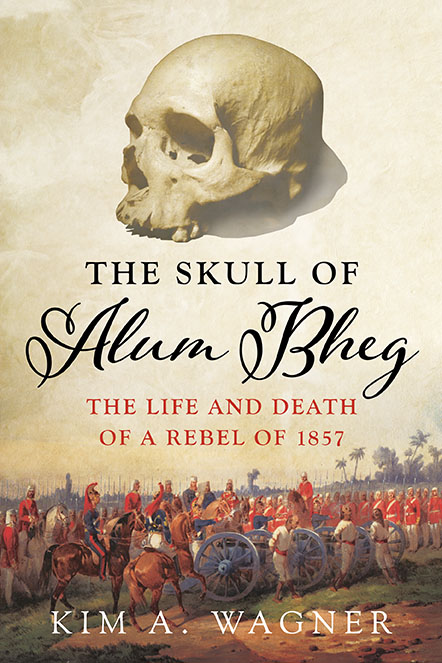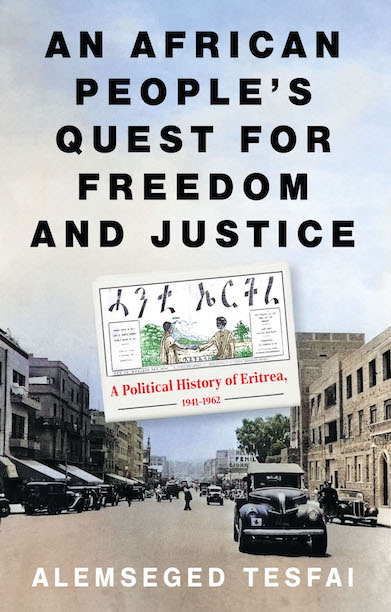The Skull of Alum Bheg
The Life and Death of a Rebel of 1857
An absorbing history charting the long afterlife of the 1857 ‘Indian Mutiny’ and the Victorians’ macabre fetish for collecting body parts.
Description
In 1963, a human skull was discovered in a pub in south-east England. The handwritten note found inside revealed it to be that of Alum Bheg, an Indian soldier in British service who had been blown from a cannon for his role in the 1857 Uprising, his head brought back as a grisly war-trophy by an Irish officer present at his execution. The skull is a troublesome relic of both anti-colonial violence and the brutality and spectacle of British retribution.
Kim Wagner presents an intimate and vivid account of life and death in British India in the throes of the largest rebellion of the nineteenth century. Examining the Victorians’ macabre fetish for collecting and exhibiting body parts, the book also offers a critical assessment of British imperialism that speaks to contemporary debates about the legacies of Empire and the myth of the ‘Mutiny’.
Reviews
‘Astonishing . . . Wagner radically reframes popular assumptions about how the British Empire was won and run . . . engrossing.’ — History Today
‘An absorbing book . . . utterly fascinating.’ — Hindustan Times
‘Gripping . . . a valuable addition to the existing body of scholarship on 1857.’— The Telegraph India
‘This is a remarkable work of historical detection . . . a meticulously researched and well-documented account of the events leading up to Bheg’s execution. . . Wagner’s book is a welcome addition to our understanding of the modus operandi of imperialism.’ — Socialist Review
‘Superb popular history . . . meticulous forensic research into the events that led to the 1857 uprising.’ — India Today
‘[Wagner] has created a historical detective story all the more intriguing because of the “archival absence” of Bheg himself . . . a fascinating study of life and death in British India.’ — Who Do You Think You Are? Magazine
‘A meticulously researched, gripping narrative that brings to life the human aspects of imperialism . . . vividly written . . . page-turning.’— Outlook India
‘Remarkable.’ — Business Standard
‘With this book Wagner casts off the crimes — mutiny and murder — for which the men of the 46th BNI were massacred. And by doing so, Wagner does something truly magical: nearly 160 years after Bheg’s brutal execution, Wagner returns him and his comrades their rightful and due honour.’ — Dawn
‘Gripping, fast paced narrative . . . Wagner delves deftly into vast primary source material to illustrate the intricate and multifaceted social histories of events . . . one pleasantly feels less that one is reading a historical account than an a heady whodunit.’ — Critical Muslim
‘Kim Wagner’s elegant narrative uses the story of one man’s death and skull to excavate the under-belly of Britain’s nineteenth century empire. With a story that pulls the reader through from page to page, this book is vital for anyone wanting to see beyond the thin liberal rhetoric of empire to understand its real life.’ — Jon Wilson, King’s College London, author of India Conquered: Britain’s Raj and the Chaos of Empire
‘The Skull of Alum Bheg reads like a detective novel and yet is also an important contribution to understanding British rule in India and the extent of colonial violence.’ — Yasmin Khan, author of The Great Partition: The Making of India and Pakistan
‘Meticulously researched and vividly written, this book will contribute to debates on the nature of colonial rule in nineteenth-century India, the origins and nature of anti-colonial violence, and the events of 1857. A compelling story, richly peopled, and filled with drama and incident.’ — Sunil Amrith, Mehra Family Professor of South Asian Studies, Harvard University
‘Provides fascinating insights into the clashing cross-perceptions and mixed motivations of the turmoil of the Indian “Mutiny” of 1857.’ — Michael Fisher, Robert S. Danforth Professor of History, Emeritus, Oberlin College
‘An excellent book — engaging, innovative and informative — which offers fresh perspectives on the 1857 Revolt. Wagner combines incisive analysis and judicious scholarship with a page-turning narrative.’ –– Ian Talbot, Professor of Modern British History, University of Southampton
‘Enthralling. Combining forensic zeal and the skill of a historian, Kim Wagner presents a fascinating and vivid account of the violence and retribution that accompanied the 1857 Uprising.’ — John Zubrzycki, author of The Last Nizam: An Indian Prince in the Australian Outback
Author(s)
Kim A. Wagner is Senior Lecturer in British Imperial History, Queen Mary, University of London. He has written three previous books on Thuggees and on the 1857 Uprising.






